When you’re dealing with a headache or cold symptoms, you face a common choice: reach for home remedies vs over the counter medications. Many people assume natural remedies are automatically safer for long-term use, but the reality is more complex than the “natural equals better” mindset suggests.
This guide is for anyone who regularly uses home treatments or OTC medications and wants to make smarter, evidence-based decisions about their health. You’ll learn which approach truly offers better long-term safety and when each option makes sense.
We’ll explore the hidden safety risks that come with popular home remedies, examine the real advantages of over-the-counter medications, and share how to create an evidence-based approach that combines the best of both worlds. By the end, you’ll know how to evaluate natural vs pharmaceutical safety based on facts, not assumptions.
Understanding the “Natural” Fallacy
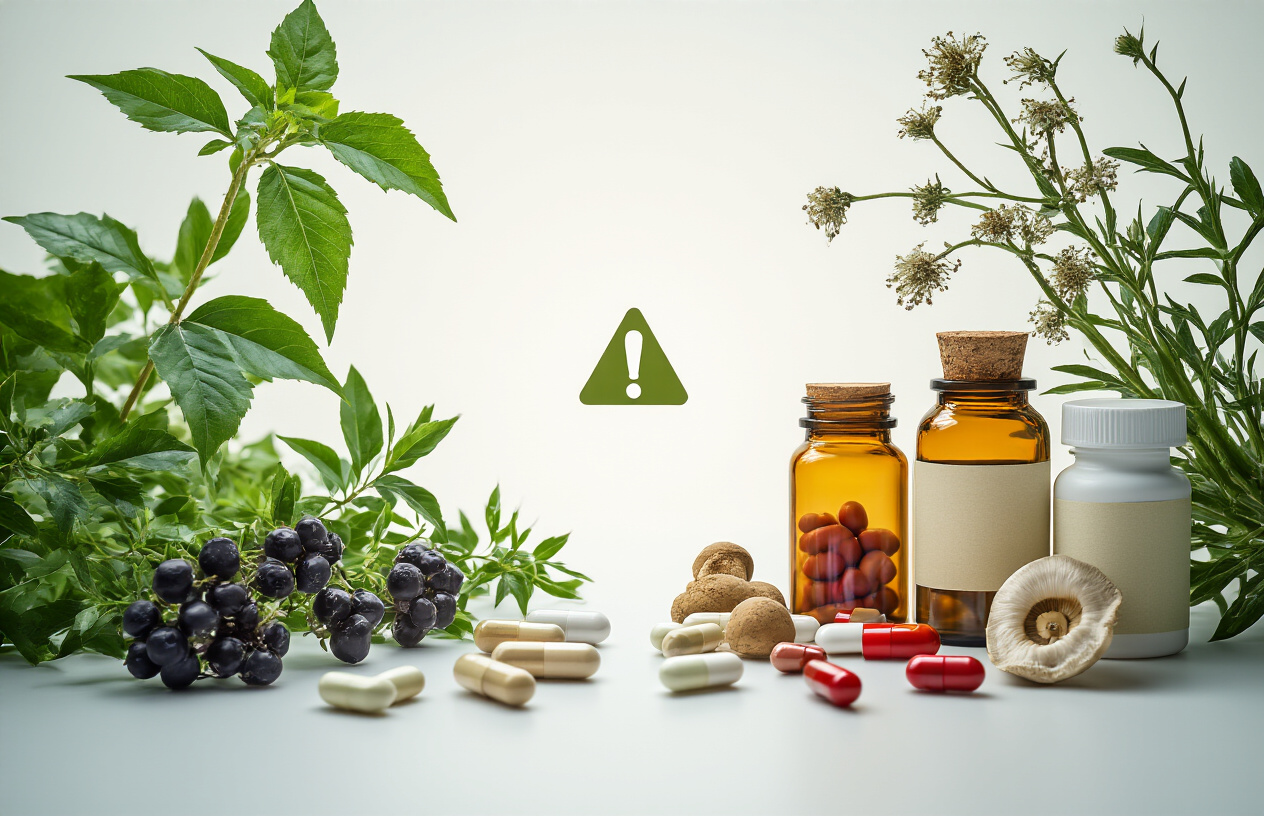
Why “Natural” Doesn’t Always Mean Safer
When comparing home remedies vs over the counter medications, many people fall victim to the appeal to nature fallacy – the systematic bias that natural products are inherently safer than synthetic alternatives. Research reveals that people strongly prefer “natural” spring water over chemically identical mineralized water, and 70 percent choose natural treatments even when informed both options are equally safe and effective. Remarkably, 20 percent still opt for natural remedies even when told they’re less safe than synthetic versions.
The Chemical Composition Reality of All Substances
Everything around us is composed of chemicals, from the apple on your counter to the air you breathe – even your own body. The word “chemical” has unfairly become synonymous with “toxic” or “synthetic,” but this misconception ignores basic science. Natural substances like mercury, snake venom, arsenic, and ricin from castor beans are highly toxic, while many synthetic compounds are perfectly safe. Herbal supplements contain dozens of chemical compounds, just like pharmaceutical medications, making the natural vs pharmaceutical safety debate more nuanced than most realize.
Common Misconceptions About Natural Products
Natural health alternatives aren’t automatically free from side effects or safety concerns. Kava supplements have been linked to severe liver damage, while ephedra was banned by the FDA in 2004 due to heart problems and death risks. Major studies of echinacea showed no benefit against common colds, and ginkgo research involving over 3,000 participants found no evidence it prevents cognitive decline. These evidence based natural medicine studies reveal that natural doesn’t guarantee effectiveness, challenging assumptions about herbal remedies effectiveness and highlighting the importance of scrutinizing all treatments regardless of their origin.
Safety Risks of Home Remedies
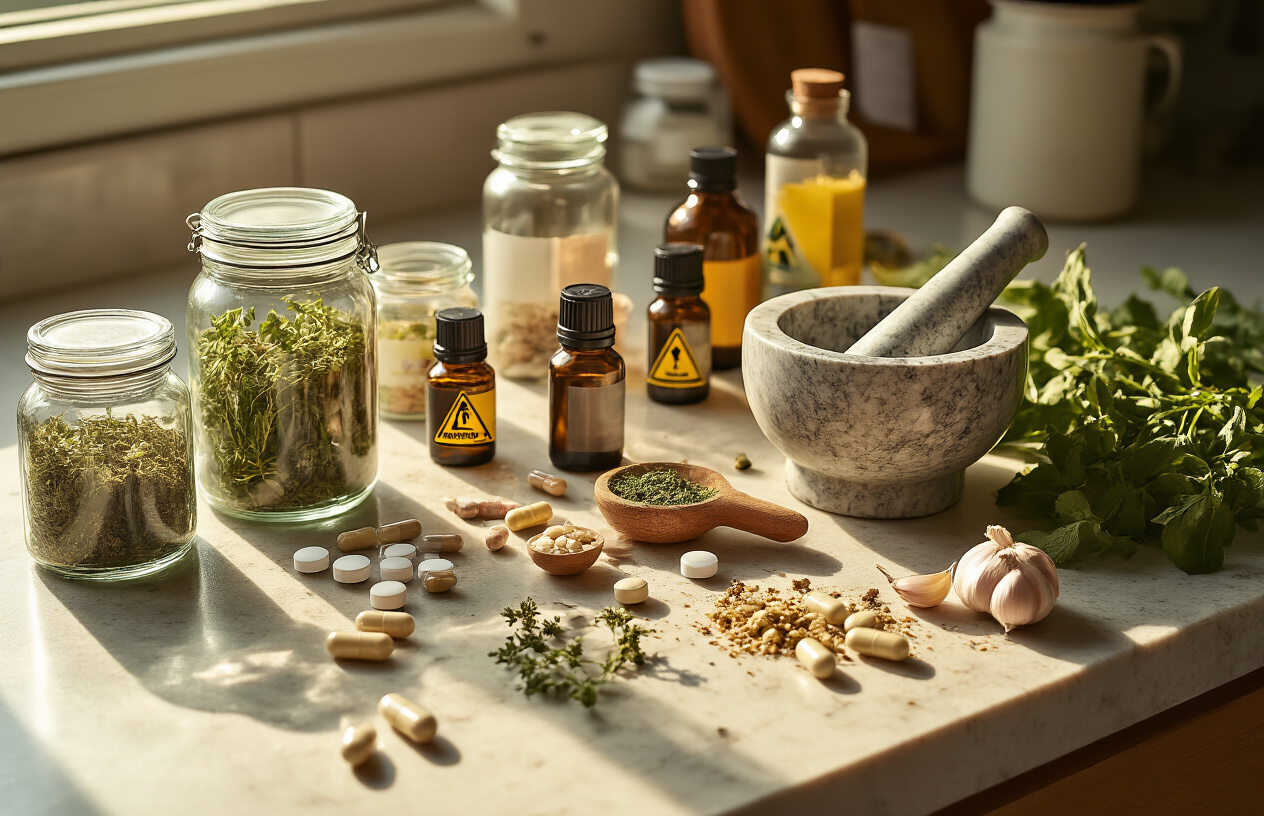
Documented Cases of Natural Product Dangers
Now that we have covered the natural fallacy, several documented cases highlight serious home remedies side effects. Colloidal silver, despite being marketed for antibacterial properties, lacks scientific data supporting its use and can damage the liver since silver is a metal that accumulates in body tissues. Essential oils, while generally safe for aromatherapy, become dangerous when ingested and can cause toxicity. These cases demonstrate that natural remedies safety cannot be assumed based solely on their “natural” origins.
Lack of Standardized Testing and Regulation
The Food and Drug Administration doesn’t have the manpower to ensure all supplements meet minimum safety standards, creating significant regulatory gaps. Unlike prescription medications, herbal remedies and supplements aren’t subject to rigorous testing requirements before reaching consumers. This absence of standardized oversight means many home remedies have never been studied to determine if they actually work or identify potential adverse reactions, leaving consumers vulnerable to unproven and potentially harmful products.
Potential for Contamination and Unknown Ingredients
Quality control issues represent another critical concern with natural health alternatives. Without proper manufacturing standards, herbal remedies can contain contaminants, inconsistent active ingredient concentrations, or unlisted substances that compromise safety. The risk of adverse reactions depends not only on the remedy itself but also on quality factors including contamination during processing, storage conditions, and manufacturing practices that aren’t adequately regulated in the supplement industry.
Effectiveness Concerns with Natural Remedies
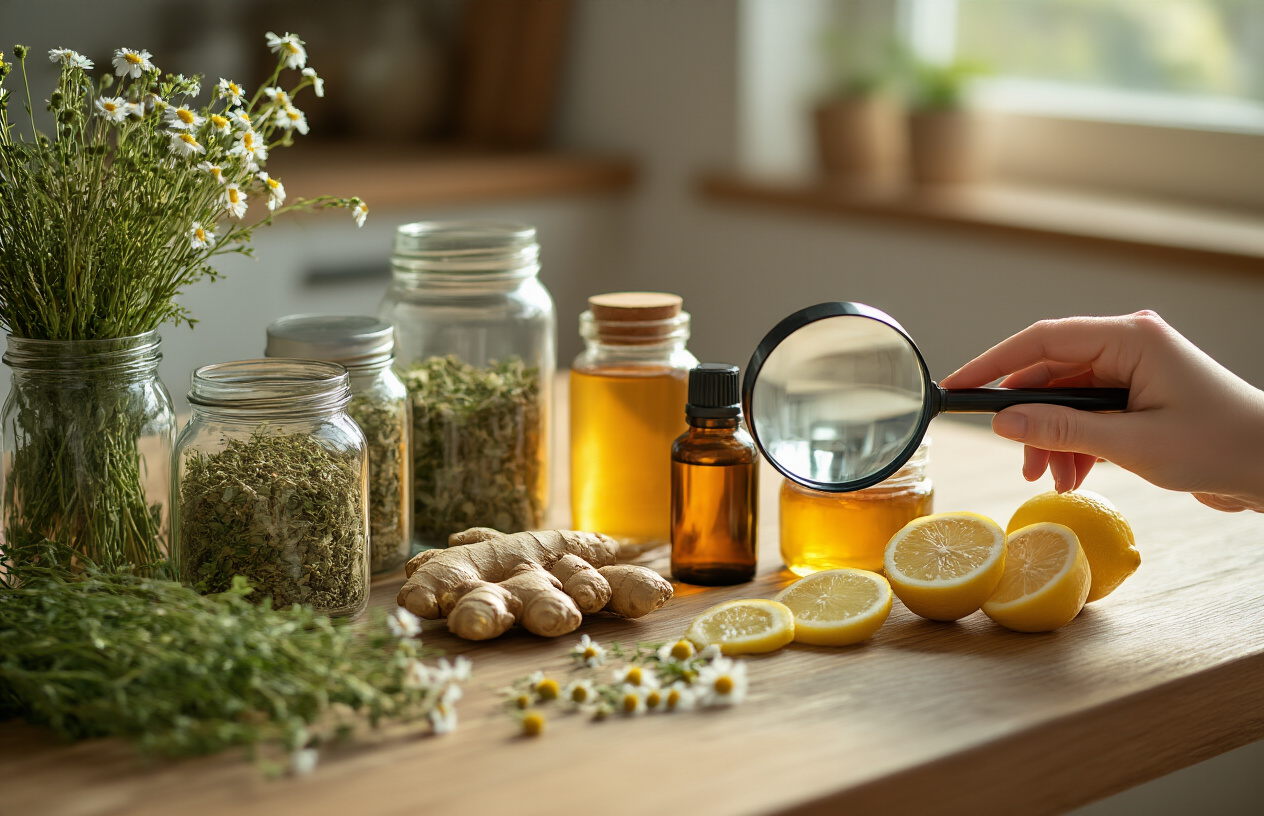
Scientific Studies Showing Limited Benefits
While systematic reviews reveal that some herbal remedies like St. John’s wort for depression and ginkgo biloba for dementia show effectiveness in clinical trials, many natural remedies lack robust scientific evidence. Meta-analyses of herbal medicines demonstrate mixed results, with some studies showing benefits comparable to conventional treatments, while others remain inconclusive, particularly for gastrointestinal disorders where evidence varies significantly across different herbal preparations.
Placebo Effect vs. Actual Therapeutic Value
Clinical studies on herbal medicines often struggle to distinguish between genuine therapeutic effects and placebo responses. Double-blind randomized controlled trials for psychosomatic disorders show that while some herbal medicines like valerian and lavender demonstrate clinical benefits for sleep disorders and anxiety, the challenge lies in separating actual pharmacological activity from psychological responses, especially when we don’t fully understand the active components or mechanisms of action.
Inconsistent Dosing and Potency Issues
Quality control presents a major concern with natural remedies effectiveness. German commercial devil’s claw products showed unacceptable variability in quality, while British herbal creams contained undeclared pharmaceutical ingredients. This inconsistency in dosing and potency makes it difficult to replicate study results in real-world applications, undermining the reliability of natural remedies compared to standardized over-the-counter medications with regulated manufacturing processes.
Over-the-Counter Medication Advantages

Rigorous FDA Testing and Approval Process
Over-the-counter medications undergo comprehensive FDA evaluation through two regulatory pathways: New Drug Application (NDA) and Abbreviated New Drug Application (ANDA) processes. Unlike home remedies, OTC drugs cannot be marketed until FDA approval is granted. The approval process includes specialized consumer behavior studies—label comprehension, self-selection, actual use, and human factors studies—ensuring consumers can safely use medications without healthcare provider supervision.
Standardized Dosing and Quality Control
The FDA’s drug application process requires sponsors to demonstrate consistent manufacturing standards and precise dosing protocols before approval. This rigorous oversight ensures each OTC medication contains exact ingredient amounts, unlike natural remedies which lack standardized preparation methods. The Over-the-Counter Monograph Safety, Innovation, and Reform Act modernizes these regulatory processes, strengthening quality control measures for consumer safety.
Known Side Effects and Drug Interactions
FDA-approved OTC medications come with thoroughly researched side effect profiles and drug interaction data gathered through extensive clinical testing. Consumer studies evaluate real-world usage patterns, identifying potential hazards before market release. This evidence-based approach provides healthcare providers and consumers with reliable safety information, contrasting sharply with home remedies where interactions and adverse effects often remain undocumented or unpredictable.
Long-Term Safety Considerations
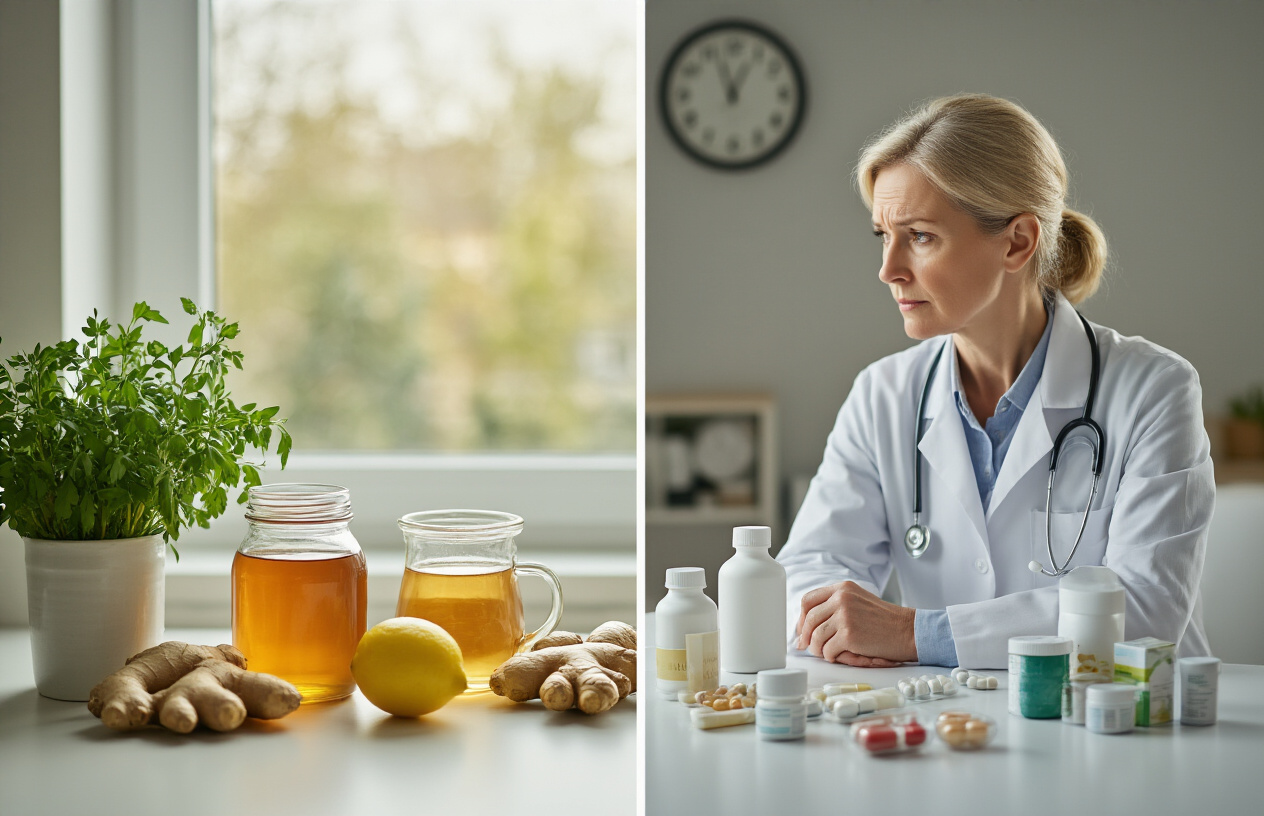
Monitoring and Reporting Systems for OTC Drugs
OTC medications benefit from robust FDA oversight systems that monitor safety throughout their market lifecycle. The FDA periodically inspects manufacturing facilities to verify compliance with labeling requirements and Good Manufacturing Practices. When adverse events occur, healthcare professionals and consumers can report reactions directly to the FDA through established channels, enabling rapid identification of safety concerns and potential product recalls when necessary.
Potential for Herb-Drug Interactions
Herbal supplements pose significant interaction risks with both prescription and over the counter medications. Vitamin K can reduce warfarin’s blood-thinning effectiveness, while St. John’s wort accelerates the breakdown of numerous medications including antidepressants, birth control pills, and heart medications. Antioxidant supplements may interfere with cancer chemotherapy effectiveness, demonstrating why natural vs pharmaceutical safety considerations require careful medical supervision.
Cumulative Effects of Unregulated Supplements
Unlike OTC drugs, dietary supplements enter the market without FDA pre-approval for safety or effectiveness. Companies are responsible for providing safety evidence, but manufacturers can introduce supplements without notifying the FDA first. This regulatory gap creates OTC medication long term effects versus unmonitored supplement risks. Excessive vitamin A causes liver damage and bone weakness, while excess iron leads to organ damage, highlighting how unregulated cumulative exposure poses serious home remedies side effects concerns.
Evidence-Based Natural Health Approaches
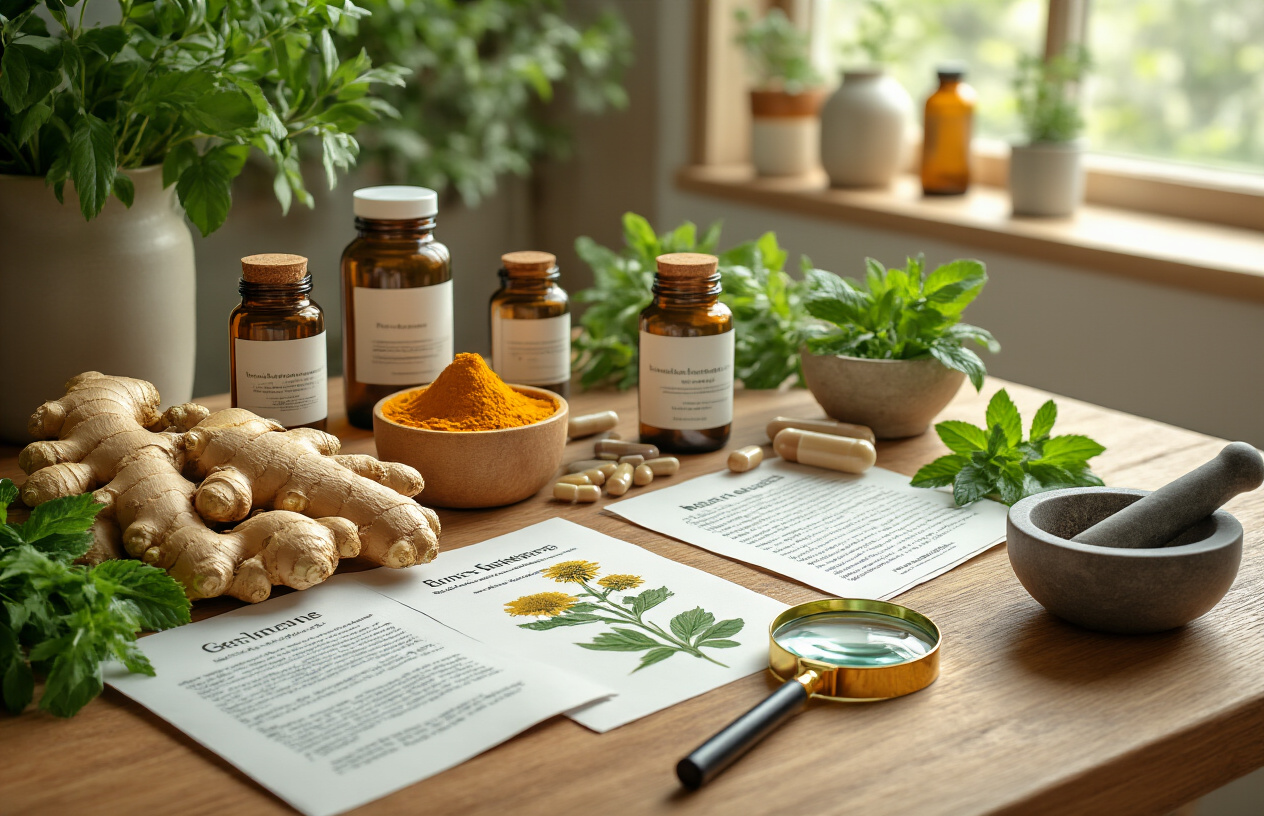
Lifestyle Changes with Proven Benefits
Now that we’ve examined the risks of unregulated remedies, evidence-based natural approaches offer genuine health benefits. Research consistently demonstrates that social connection significantly boosts mood, reduces stress, and extends lifespan through volunteering and meaningful relationships. Regular physical activity serves as one of the most powerful natural tools available, effectively reducing anxiety and depression while improving cardiovascular health and preventing stroke. Mindfulness practices including meditation and yoga provide safe, accessible methods to lower blood pressure, enhance sleep quality, and reduce pain naturally.
Safe Natural Practices Backed by Research
Time in nature requires just two hours weekly to boost overall health and well-being, with even simple walks under trees making measurable differences in mental state. Balanced nutrition featuring fruits, vegetables, whole grains, and lean proteins provides essential nutrients for healing and strength while reducing processed foods improves energy, sleep, and mood. Quality sleep of 7-9 hours nightly with consistent bedtime schedules represents one of the most effective natural health interventions available.
When Natural Methods Are Most Effective
With this evidence-based foundation, natural methods prove most effective as lifestyle modifications rather than supplement replacements. These approaches work best for prevention and general wellness rather than treating acute medical conditions. The safest, most effective natural treatments consistently involve behavioral changes and environmental modifications rather than pills or powders, making them ideal long-term strategies for maintaining optimal health without the regulatory concerns associated with unregulated natural products.
Making Informed Health Decisions

Consulting Healthcare Professionals Before Starting Any Treatment
Previously, we’ve explored the complexities of home remedies vs over the counter options, but effective healthcare decision-making requires professional guidance. Research demonstrates that informed medical decision-making occurs when patients understand both their condition and treatment implications, including benefits, harms, limitations, alternatives, and uncertainties. Healthcare providers possess the technical knowledge necessary to evaluate risks, benefits, and side effects associated with each treatment option, whether natural remedies safety or OTC medication long term effects are being considered. However, surveys reveal that fewer than one in five patients report that their healthcare provider asked about their preferences for care, indicating significant room for improvement in provider-patient communication regarding natural vs pharmaceutical safety decisions.
Evaluating Claims and Sources Critically
With this understanding of professional consultation importance, patients must also develop skills to critically assess health information. Evidence shows that many patients struggle with understanding numeric risk information, with only 54% able to correctly answer questions about risk magnitudes or convert risks into probabilities. Mass media influence, sensationalized medical information, and celebrity medical treatments significantly impact treatment decisions, often leading to misconceptions about herbal remedies effectiveness or over the counter drug risks. Multiple barriers impede informed decision-making, including limited health literacy, little experience participating in medical decisions, and difficulty accessing reliable evidence based natural medicine information. Patients should seek information from reputable medical sources and be wary of anecdotal claims that lack scientific backing when evaluating safe home remedies for adults or conventional treatments.
Balancing Natural and Conventional Treatment Options
Now that we have covered the importance of professional guidance and critical evaluation, the optimal approach involves thoughtfully integrating both natural health alternatives and conventional treatments based on individual circumstances. Decision aids have proven effective in promoting informed decision-making, with research showing they increase patient knowledge, lead to more accurate risk perceptions, reduce decisional conflict, and often result in choosing less invasive treatments. These tools help patients understand their prognosis and the risks and benefits of different treatment options, whether considering home remedies side effects or pharmaceutical alternatives. The most effective healthcare decisions incorporate both technical medical knowledge and patient values and preferences, allowing individuals to make choices aligned with their personal circumstances while maintaining safety as the primary consideration.

The choice between home remedies and over-the-counter medications isn’t simply a matter of “natural versus synthetic.” Both approaches carry benefits and risks that must be carefully weighed. While nature has given us valuable medicines like aspirin and morphine, the “natural” label doesn’t guarantee safety or effectiveness. Some herbal remedies can cause serious side effects or interact dangerously with other medications, while many lack the rigorous testing required for FDA-approved drugs.
The safest path forward involves making informed, evidence-based decisions about your health. When considering any treatment option—whether a home remedy or over-the-counter medication—consult with your healthcare provider first. Focus on proven natural approaches like regular exercise, healthy eating, adequate sleep, and stress management through mindfulness practices. These lifestyle changes offer the most reliable, long-term health benefits without the uncertainty that comes with unregulated supplements or untested remedies.
Remember that effective healthcare often combines the best of both worlds: evidence-based conventional treatments when needed, supported by healthy lifestyle choices that naturally strengthen your body’s ability to heal and maintain wellness.